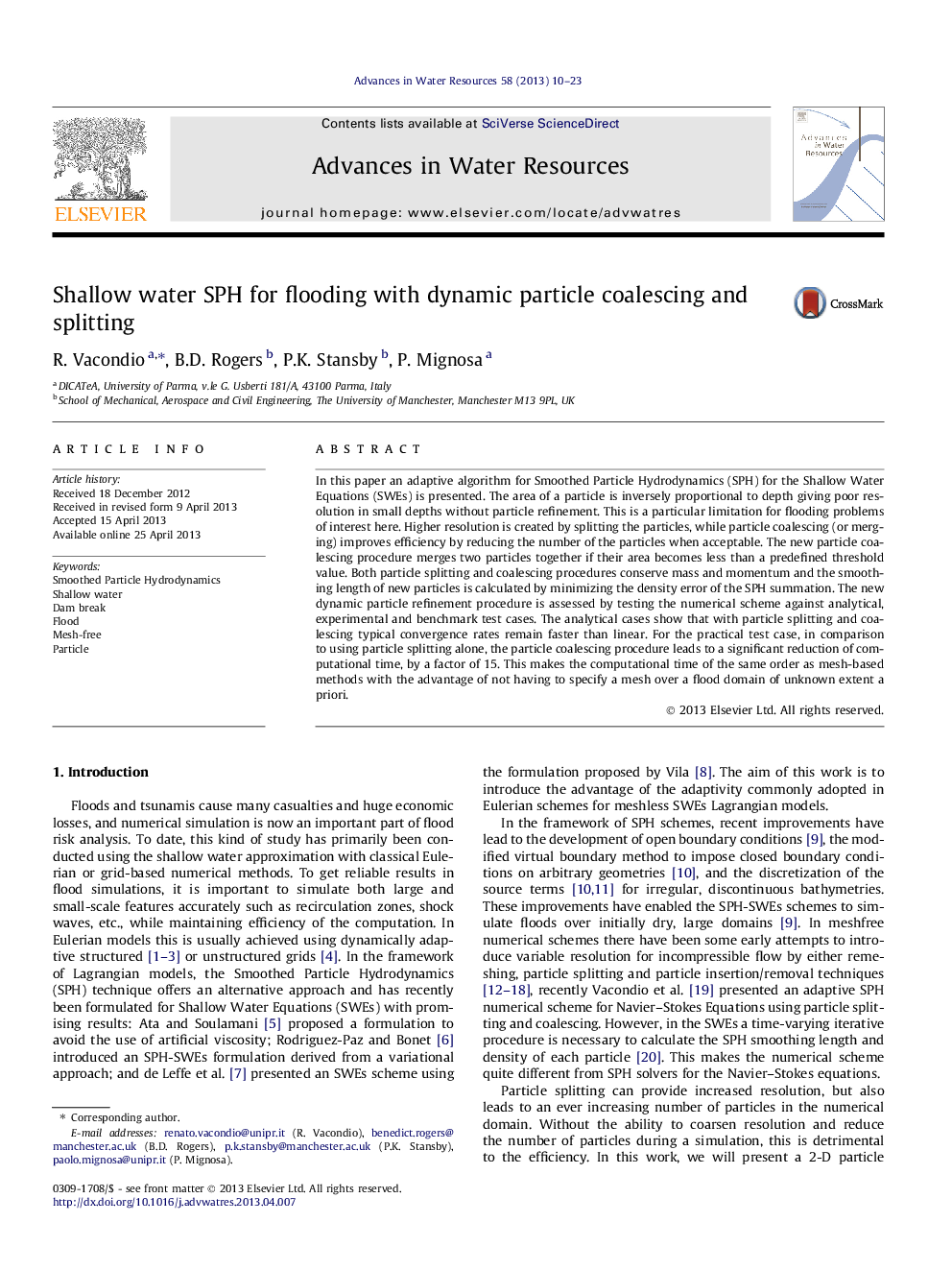| Article ID | Journal | Published Year | Pages | File Type |
|---|---|---|---|---|
| 4525701 | Advances in Water Resources | 2013 | 14 Pages |
•SPH h-variable algorithm for Shallow Water Equations with variable resolution.•Dynamic particle splitting and coalescing (merging) conservative procedures.•Testing against analytical solutions and experimental data.•Application to a practical test case, obtaining a speed-ups of about 15.
In this paper an adaptive algorithm for Smoothed Particle Hydrodynamics (SPH) for the Shallow Water Equations (SWEs) is presented. The area of a particle is inversely proportional to depth giving poor resolution in small depths without particle refinement. This is a particular limitation for flooding problems of interest here. Higher resolution is created by splitting the particles, while particle coalescing (or merging) improves efficiency by reducing the number of the particles when acceptable. The new particle coalescing procedure merges two particles together if their area becomes less than a predefined threshold value. Both particle splitting and coalescing procedures conserve mass and momentum and the smoothing length of new particles is calculated by minimizing the density error of the SPH summation. The new dynamic particle refinement procedure is assessed by testing the numerical scheme against analytical, experimental and benchmark test cases. The analytical cases show that with particle splitting and coalescing typical convergence rates remain faster than linear. For the practical test case, in comparison to using particle splitting alone, the particle coalescing procedure leads to a significant reduction of computational time, by a factor of 15. This makes the computational time of the same order as mesh-based methods with the advantage of not having to specify a mesh over a flood domain of unknown extent a priori.
